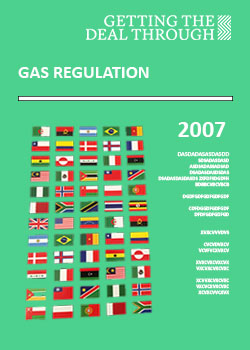How to avoid Services Agreements turning into employment contracts in Colombia?

Services agreements have been traditionally used to avoid the payment of premiums, contributions and other benefits inherent to labor relationships in accordance with Colombian labor law; as a result, Colombian labor case law has been consistent in applying the constitutional principle of “reality contract” whereby the judicial authorities in Colombia must evaluate the evidence in a joint manner and according to the principles of “good judgment”, in order to determine when there actually exists an independent rendering services relationship or a labor contract.
Accordingly, judges must determine beyond the formal aspects, whether there is an underlying labor relationship, which can only be achieved through a deep analysis of the circumstances under which the contract was developed, in order to ensure that what has been agreed between the parties actually corresponds to the reality.
Services Agreements vs Employment Contracts
As in most countries in Latin America, Colombian labor law places an important burden on employers with regard to employee’s protection measures. Apart from salary payments, local regulation envisages a number of obligations that all employers must comply with regardless of the nature or sector where they operate.
For instance, employers must affiliate employees to health, pension and professional risks’ funds and contribute to such funds on a monthly basis. Likewise, all employers must contribute to a welfare entity called “family compensation fund” (from the Spanish name “caja de compensación familiar”). There are several such funds that operate throughout the country with the aim to provide welfare to employees. They own supermarkets, drug stores, hotels, sports centers and they also supply employees with economic assistance for education and housing, among others.
Employees also benefit from additional payments such as:
- A severance contribution to be paid once a year corresponding to one monthly wage, which is paid directly to the fund chosen by the employee;
- Interests over severance which is also paid on an annual basis directly to the employee and corresponds to 12% of his/her monthly wage;
- Services premium which corresponds to one monthly wage per year and is paid in two installments;
- Paid vacations corresponding to fifteen business days per year.
Moreover, employer and employee may agree on additional payments that may not be deemed as part of the salary and therefore not subject to social security contributions, provided they do not exceed 40% of the employee’s salary.
As noted, in Colombia, labor law and case law provide certain protections for the employee considering his/her situation of subordination in relation to the employer. On the contrary, a services agreement, based on an independent relationship between the contracting party and the individual rendering services, only grants the service provider certain benefits. For instance, the independent contract must assume directly and without any payment by the contractor, all contributions to the social security system. Given the high volume of default in independent contractors regarding compliance with such obligation, the government decided to change the payment method. This is why Decree No. 1273 of 2018 was passed, so that contracting parties may withhold from the payment of fees such social security contributions and transfer such funds directly to the system without allowing the independent contractor to touch that money before transfer. Unlike employment contracts, under services agreements there are a number of payments that do not exist, such as the payment of premiums, severance payments, interest over severance, paid holidays and fringe benefits. As a consequence, certain employers have used the services agreement figure to avoid these payments and to obtain the hired services with a lesser cost. It is common to see many companies with a small number of actual employees and a large number of independent contractors who are hired on a permanent basis through services agreements but render their personal services under the subordination of the company thus deriving in a de facto employment relationship. This is why a very important number of labor lawsuits heard by labor courts in Colombia refer to claims by independent contracts who allege that an actual employment contract existed and therefore all labor-related compulsory payments were due.
For foreign companies doing business in Colombia, it is challenging to see how their services agreements (widely used in commonwealth jurisdictions) are not upheld by local courts, based on the principle under labor law that the actual reality of the relationship prevails over any written contract. In this sense, if the independent contractor is able to prove that the three elements of the labor relationship were present, then an employment contract existed regardless of the services agreement that was actually executed between the parties. Such three elements are: personal services, payment of compensation and subordination.
The Supreme Court of Justice determined on its judgment passed on February 20, 2019 that the temporality and exceptional nature of the contract is an essential element of services agreements. The Court further indicated that, when the hired activities require a higher or indefinite duration which overflows its transience, the contracting party must adopt a more permanent contractual figure, i.e. an employment contract.
Economic Consequences
The economic consequences of the declaration of the existence of a labor relationship can be very costly, since they entail retroactive payments of premiums, social security contributions and severance payments that should have been paid to the contractor in addition to the penalties that are applicable according to the applicable law. Consequently, when deciding which contractual figure is best to engage an individual, it is key to determine whether the hired services are of a permanent or a temporary and exceptional nature.
The key element to distinguish between a services agreement and an employment relationship is perhaps subordination. Doctrine and case law have provided several examples of when subordination is deemed to exist, namely: having a working schedule that is complied with on a regular basis; receiving tools to perform the services such as computers, equipment or working space; providing a corporate e-mail address; and in general, treating the independent contract in the same way as employees are treated within the organization.
Conclusion
When hiring staff in Colombia, companies must be careful as to the actual nature of the relationship they are entering into with individuals locally. Drafting a good contract that reflects the actual reality of the relationship is key but also making sure that the tasks required and duties to be performed by the contractor have not been deemed by case law as caught under an employment contract. The downside with the Supreme Court of Justice’s recent decision is that any contractor hired on a permanent basis would seem to be deemed an employee even if the subordination element is not clear. The good news is that, unlike the US, the Colombian civil legal system does not use case law as a compulsory precedent and, therefore, every situation must be studied and decided on a case-by-case basis.

The Council of State clarifies the requirements for the application of the VAT exemption for services rendered in the country and used exclusively abroad

Data Protection & Privacy



